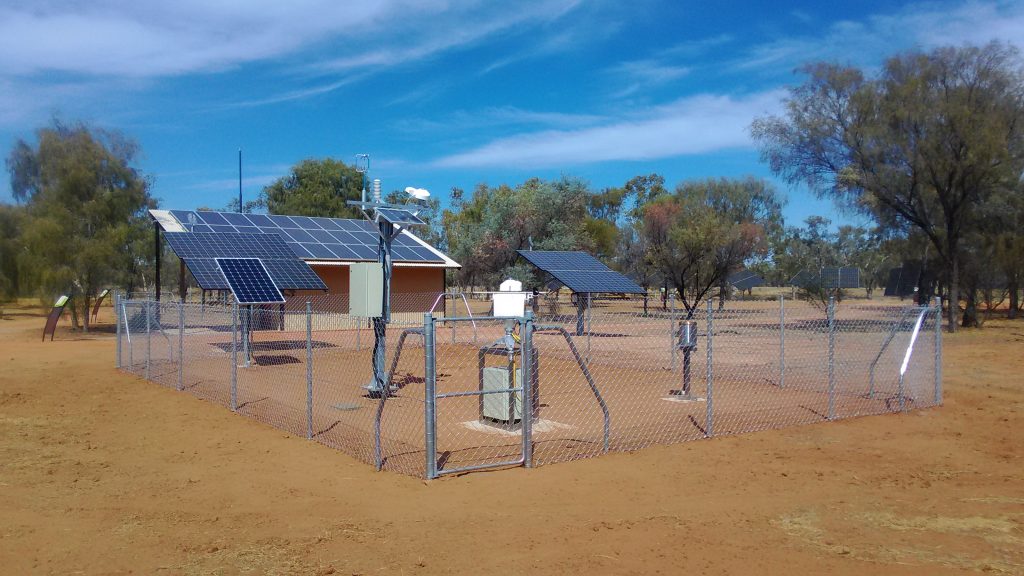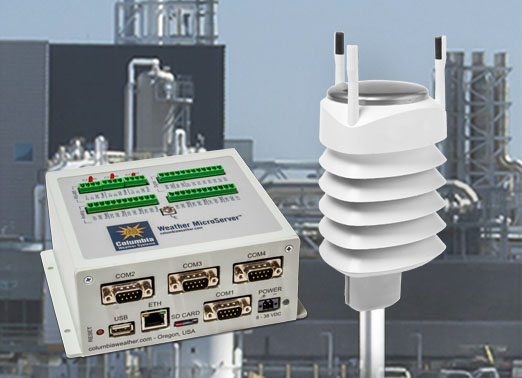Checking Out the Various Sorts Of Expert Climate Stations for Accurate Data Collection
When it comes to picking the proper weather condition station for data collection, the market offers a selection of alternatives customized to various requirements and settings. Allow's discover the nuances of these professional weather terminals to realize their special performances and identify the best fit for specific information collection needs.
Digital Weather Condition Stations
In the realm of meteorological instrumentation, digital climate terminals stick out as innovative devices for accurate data collection and analysis. These advanced stations are equipped with sensing units that catch a vast array of weather criteria such as temperature, humidity, barometric stress, wind speed, and instructions. The data gathered by digital weather condition stations is sent wirelessly to a main console or a computer for real-time surveillance and evaluation.
Among the key advantages of electronic weather stations is their ability to give high-resolution data with precision and reliability. This degree of precision is critical for various applications, consisting of agriculture, emergency situation, research, and air travel feedback. Moreover, digital climate stations frequently feature software that enables individuals to envision the data in different styles like charts and graphs, assisting in easier interpretation and decision-making.
Wireless Weather Stations
Building on the abilities of digital weather condition terminals, cordless weather condition stations use boosted benefit and versatility in data transmission and tracking. By using wireless innovation, these weather condition stations eliminate the need for cumbersome wired links, enabling very easy installment in different places. The wireless function enables real-time data surveillance from remote locations, supplying meteorologists and weather condition enthusiasts with instant access to critical details.
Wireless climate terminals usually contain sensing units that gather data on temperature level, moisture, barometric pressure, wind speed, and instructions. These sensors wirelessly transmit the information to a central console or receiver, where it is refined and displayed for evaluation. Some progressed cordless weather terminals can also attach to the web, permitting customers to access their climate data remotely using smart devices or computer systems.

Prosumer Weather Condition Terminals
What distinguishes Prosumer Weather condition Stations from standard consumer-grade climate stations? Prosumer Weather Stations bridge the space in between professional-grade and consumer-grade equipment, providing more sophisticated functions and greater precision than typical home weather stations. These stations are developed for weather condition lovers, amateur meteorologists, and tiny organizations that require more precise data than what consumer models can offer.
Prosumer Weather condition Stations typically consist of a broader series of sensing units to gauge added atmospheric criteria such as UV index, fallen leave dampness, and dirt wetness. They likewise have a tendency to have a higher level of sturdiness and dependability, making them appropriate for long-lasting outdoor use in various environmental problems.


Industrial Climate Stations
Industrial Weather condition Stations, also called atmospheric tracking systems, are specialized tools designed for exact and durable weather information collection in commercial settings. These stations are customized to meet the special needs of industrial operations where exact weather information is critical for safety, effectiveness, and decision-making procedures.
Industrial weather stations are furnished with innovative sensors that can measure a large array of meteorological parameters such as temperature, moisture, wind rate and instructions, barometric stress, and rainfall (Weather Stations). These terminals are frequently ruggedly developed to hold up against harsh environmental conditions normally located in industrial environments
One secret function of industrial weather condition stations is their ability to offer real-time data monitoring and analysis. This allows industrial facilities to prepare for weather-related threats, maximize procedures based upon climate problems, and make sure the security of workers and devices. Additionally, industrial weather terminals can be incorporated into existing industrial control systems for seamless information monitoring and automation.
Mobile Weather Condition Stations
As opposed to fixed industrial weather stations, mobile weather condition terminals use versatility and movement for on-the-go data collection in numerous ecological settings. These compact devices are created to be quickly transferred to various areas, making them optimal for field study, Learn More emergency situation reaction scenarios, farming, construction websites, and outside events.
Mobile weather terminals normally include sensing units for determining parameters such as temperature level, humidity, barometric stress, wind speed, and wind instructions. Some advanced versions may additionally feature added sensing units for keeping track of rains, solar radiation, and UV levels. Regardless of their little dimension, portable climate stations are qualified of offering exact and reputable information similar to that of bigger, repaired terminals.
One of the vital advantages of mobile weather stations is their fast deployment and simplicity of setup. They can be operational within mins, enabling quick data collection and analysis. In addition, these stations can be set to transmit real-time data wirelessly, allowing customers to keep track of and analyze environmental conditions from another location. On the whole, portable weather condition terminals are invaluable tools for experts calling for portable, precise, and prompt climate details in diverse settings.
Conclusion
To conclude, professional weather stations come in different types such as digital, wireless, prosumer, industrial, and portable. Each type provides distinct functions and abilities for precise information collection. Selecting the ideal weather condition station depends on the particular needs and requirements of the user. By understanding the distinctions in between these kinds of weather condition stations, individuals can make informed decisions to ensure they get one of the most reliable and precise climate information for their functions.
Structure on the capacities of digital weather condition terminals, wireless climate terminals supply improved ease and versatility in information transmission and monitoring. Some advanced cordless weather terminals can even link to the internet, enabling users to access their weather condition data remotely via smart devices or computers.
Prosumer Weather condition Stations bridge the void between professional-grade and consumer-grade equipment, using more sophisticated functions and higher precision than typical home weather condition terminals. Weather click to read more Stations. Overall, portable climate stations are vital tools for experts needing mobile, accurate, and timely climate information in diverse settings
By comprehending the distinctions between these types of weather condition terminals, people can make informed decisions to ensure they get the most specific and dependable climate data for their purposes.